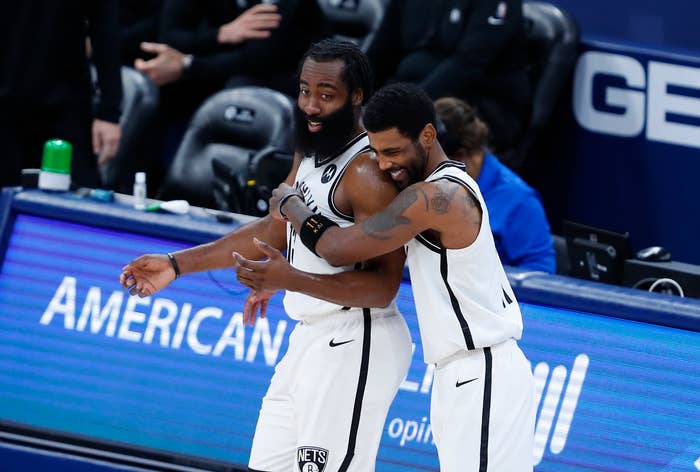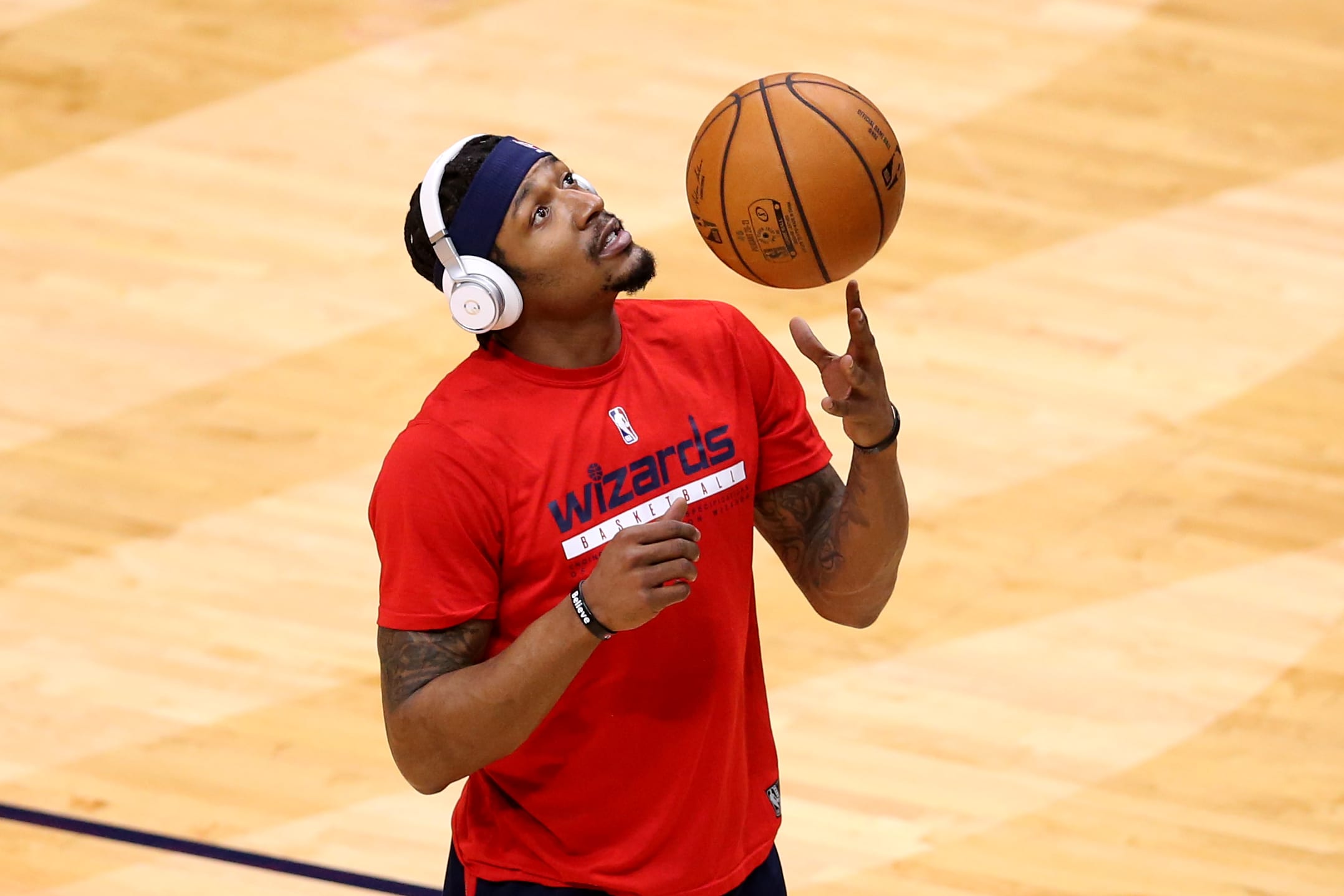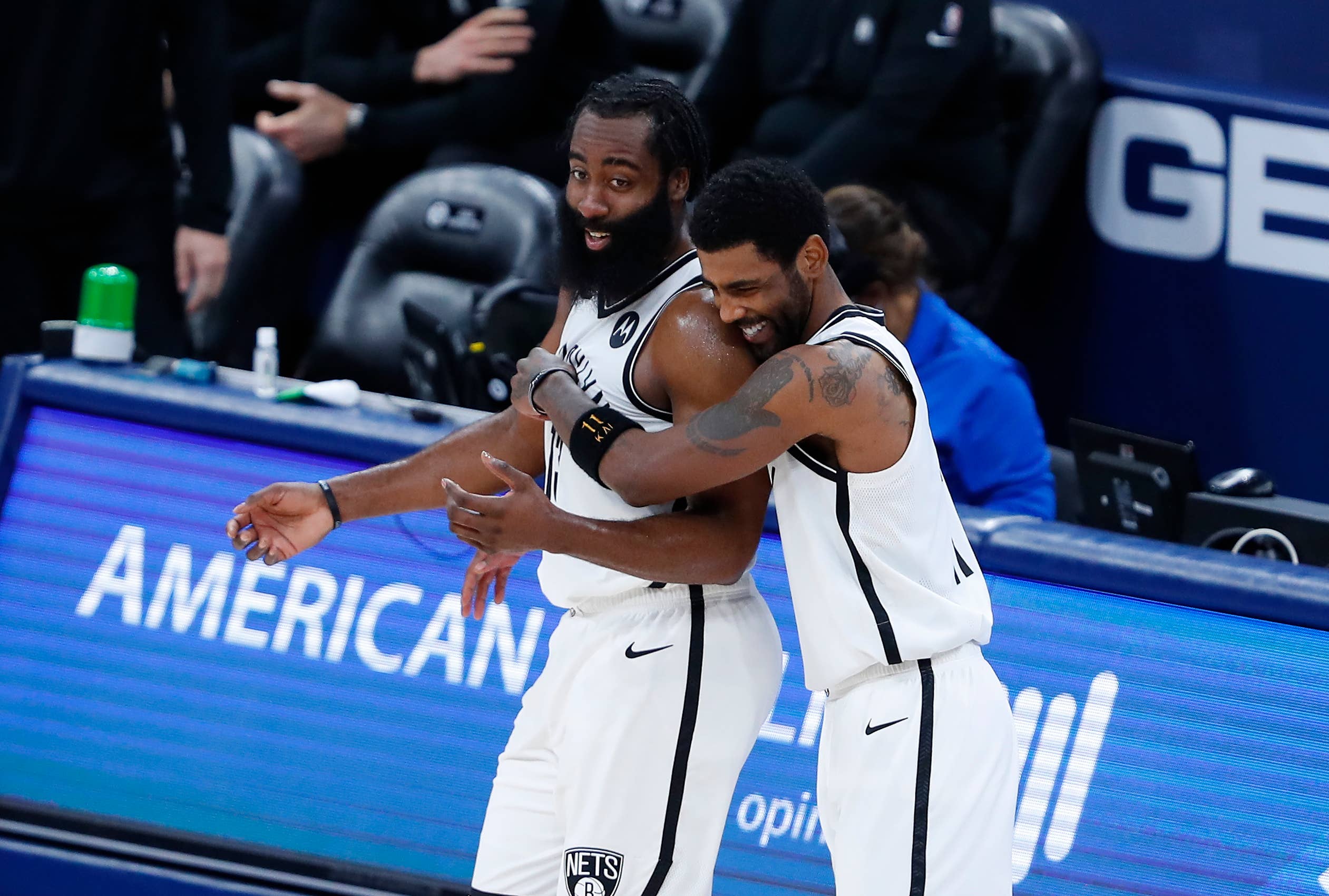
Proving that billionaire owners, or more precisely their close business associates, are just like the rest of us, Bobby Marks remembers the days when Nets executives would ask him to evaluate a trade they made up the night before on the internet.
“When I was in Brooklyn and we had the Russian group,” says Marks, now ESPN’s NBA front office insider, “we’d come in some mornings and we’d have ownership trade questions from ESPN they had gone through and say, ‘Hey, does this make sense?’”
Offering up the ability to play pretend GM, it doesn’t take an Ivy League-educated elite to understand the appeal of a trade machine. ESPN’s debuted in 2006 while RealGM and, more recently, tradenba.com built their own versions that allow savvy basketball observers to test out potential trades just as easily as a kid trying to create the next super team.
Whether or not they serve a positive purpose—since many who tinker with them fail to grasp just how nuanced and layered an NBA trade actually is and create farcical transactions that would never happen in a million years—might be debatable if you consider yourself an educated and sophisticated basketball observer. But given trade machines often serve as a gateway for fans to gain a deeper knowledge of the league, only the saltiest of cynics would suggest trade machines are anything but harmless.
“I think anything that brings people enjoyment and allows them to enjoy the NBA and the sport more deeply, or on different levels, is nothing but positive,” says Thunder general manager Sam Presti. “At the end of the day, sports is something to be experienced and brings you memories and joy and a lot of times frustration. If the trade machine is another extension of that experience, and people enjoy it more and builds their passion for the sport, I think it’s great.”
It’s a cool tool. The appeal of being able to shift the balance of power in the league—like sending Bradley Beal to a contender—with just a few clicks of the mouse is undeniable. So is the satisfaction of believing you could make your favorite team better, if only the GM listened to you, then proving it to your friends. Plus, today’s trade machines do a significantly better job of incorporating those complicated collective bargaining agreement rules—like how a team can’t receive more than 125 percent plus $100,000 of the salary it’s trading for a deal to be okayed and other legalese that would make the average fan’s head spin.
“I think the educated fans come up with some pretty creative trades. What I always say to fans is it’s fun to do it, but you have to put yourself—not in the perspective of a fan of the Knicks or Heat—of the GM of both teams.” — Bobby Marks
Zach Rodriguez, who hails from San Antonio and is a Spurs fan, is the mastermind behind the tradenba.com machine that launched two and a half years ago in order, he says, to “make a better version of the ESPN trade machine.” If you’ve spent time on his site then you know he’s largely succeeded. Rodriguez took six months to build it before it debuted and gradually added features fans pined for on Reddit and other areas of the internet—like the ability to trade picks and incorporating pick swaps and protections. He’s constantly tweaking the machine as the NBA adapts to the pandemic.
“It’s definitely been challenging this past year with so many changes to the CBA,” says Rodriguez. “We’ve been trying to keep track of those and as that information comes in then we add that to the site. That’s something we definitely want to do, add that educational aspect to it to just have people more informed when using our tools.”
While he has no idea the breakdown between users of the site who create legit trades vs. those that want to deal Steph Curry to the Lakers, the next evolution of Rodriguez’s trade machine would incorporate common sense. Technically LeBron James can be traded, but we all know he’s untouchable.
“We do want to make it as realistic as possible and we also do like the fact that normal people can use it,” says Rodriguez. “If we ever got the opportunity for real teams to use it that would be another cool thing to have.”
Plenty of teams, says Marks, have their own in-house trade machines built by members of their analytics department that aren’t significantly more complicated than what’s available to fans. Marks also points out that the NBA provides access to a contract management system teams can quickly crosscheck while RealGM offers a subscription-based service for teams to get creative with potential transactions.
While all 30 teams have a ton of tools at their disposal to cook up a potential deal, there’s obviously so much more that goes into consummating a trade than just plugging a few names into a machine and hoping the math works. Deals are delicate and getting them to the finish line is way less glamorous than you think.
“If you ever got under the hood most fans would be disappointed with the way these things happen and pretty much how things are really outside of your control,” says Presti. “Constructing the math or the composition is less than a percent of actually executing a lot of these things. A lot of these things come down to circumstance, fortune—good or bad—relationships, and other market forces.”
Other than a blockbuster involving a disgruntled superstar—like we saw with the James Harden trade in January, where a few teams reportedly took their best shot at doing whatever they could to acquire the three-time scoring champion—trades in the Association are way more organic, and oftentimes way more random, than fans might realize.

That’s because like every other industry, the NBA is a relationship-based business. Teams have a better rapport with some compared to others and that’s why, for instance, Marks says we’ve seen Utah and Cleveland consummate trades with each other the past four seasons. A close personal relationship with former Kings GM Pete D’Alessandro is how in 2014 Marks brought Marcus Thornton to the Nets in exchange for Jason Terry and Reggie Evans. He wasn’t in hot pursuit of the shooter.
“The conversation when I called Pete wasn’t about the trade, it was really just to bullshit,” says Marks. “And in the course of 20 minutes, because we needed a shooter back then, [I go,] ‘Hey Pete, I know Marcus Thornton’s not been playing much, would you have any interest in doing something?’ And he was like, ‘Yeah, let me think about it.’ That’s how things start.”
Another thing to keep in mind the next time you fire up the trade machine—according to Marks, deals are generally evaluated in three-year windows. If a player with an expiring contract isn’t part of the transaction, teams will ask themselves how does the acquisition of player X and player Y impact the team’s salary cap down the road? And how does the acquisition change the availability of everyone else on the roster?
“I think the educated fans come up with some pretty creative trades,” says Marks. “What I always say to fans is it’s fun to do it, but you have to put yourself—not in the perspective of a fan of the Knicks or Heat—of the GM of both teams. Like, it can’t always be a win for the Knicks. How does it help both teams? How is it a win-win?”
But when fans are screwing around with the trade machine late at night after the latest rumor hits Twitter, too often it doesn’t get that deep. And while trade machines generally do their best to quantify the impact a transaction will have on each team’s projected win total, never lose sight of its biggest, most obvious flaw: it can’t predict the future.
“I wish the trade machine told me in 2013 that Jayson Tatum and Jaylen Brown would’ve been drafted by the Celtics,” jokes Marks. “That’s the downside, it’s kind of just about the now.”

